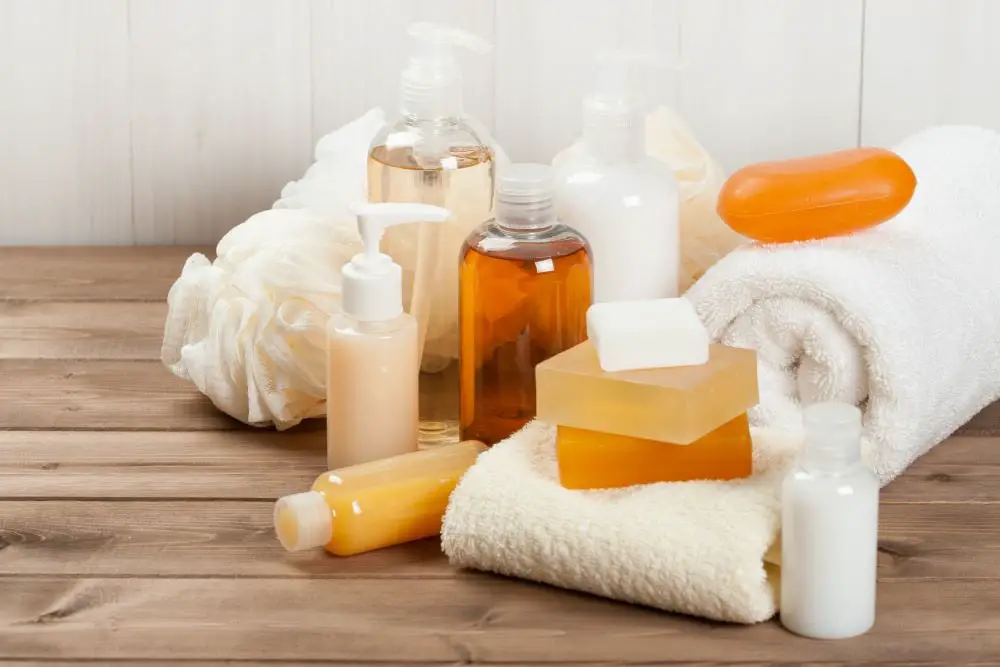What Ingredients to Avoid in Body Wash? Approved Terrific Technology Insights
In our journey towards better health and eco-consciousness, paying attention to the ingredients in our personal care products has become paramount. One such product that we use almost daily is body wash. While body washes are incredibly convenient and effective at keeping us clean, not all of them are friendly to our skin or the environment. This article aims to enlighten you on what ingredients to avoid in body wash to ensure you're making better choices for both your skin and the planet.

Why Ingredient Awareness Matters
With numerous products flooding the market, it can be challenging to keep track of the ingredients that go into them. However, ingredient awareness is crucial because certain chemicals can cause skin irritation, allergic reactions, hormonal imbalances, and may even be harmful to the environment. Eco-conscious shoppers and anyone interested in overall health and well-being should prioritize identifying and avoiding these harmful ingredients.

Top Ingredients To Avoid In Body Wash
1. Parabens
Parabens are widely used as preservatives in many personal care products, including body washes. They are effective at preventing the growth of bacteria and mold, extending the product's shelf life. However, parabens can easily penetrate the skin and have been linked to hormonal disruptions as they can mimic estrogen in the body. They have also been found in breast cancer tissues, raising concerns about their safety. Look for labels that say paraben-free to avoid them.
2. Phthalates
Phthalates are commonly used to make fragrances last longer. Unfortunately, they are also known endocrine disruptors, meaning they can interfere with hormonal systems. Phthalates have been associated with reproductive issues, asthma, and developmental abnormalities in children. To avoid phthalates, consider using fragrance-free products or those that use natural fragrances.
3. Sodium Lauryl Sulfate (SLS) and Sodium Laureth Sulfate (SLES)
These surfactants are responsible for the foaming action in many body washes. While they are effective at removing dirt and oil, they can be quite harsh on the skin, stripping away natural oils and causing dryness, irritation, and allergic reactions. Moreover, SLES is often contaminated with 1,4-dioxane, a potential human carcinogen. Opt for sulfate-free products to keep your skin happy and healthy.
4. Triclosan
Originally developed as a surgical scrub for hospitals, triclosan is an antibacterial agent found in many soaps and body washes. Though it is effective at reducing bacteria, triclosan has been linked to antibiotic resistance and hormonal disruptions. It can also be harmful to aquatic life when it makes its way into water systems. Choosing triclosan-free products is a safer and more eco-friendly alternative.
5. Formaldehyde and Formaldehyde-Releasing Agents
Used as preservatives, these chemicals help extend the shelf life of body washes. However, formaldehyde is a known carcinogen and can cause allergic skin reactions and weaken the immune system. Look for ingredients like formalin, methanol, and Quaternium-15, which release formaldehyde, to avoid this harmful compound.

How To Choose A Safe And Eco-Friendly Body Wash
Read Ingredient Labels Carefully
The most reliable way to ensure you're avoiding harmful chemicals is by reading ingredient labels diligently. Familiarize yourself with the most common toxic ingredients and look for alternatives that explicitly state what they do and don't contain.
Look For Certifying Marks
Certifications from reputable organizations like USDA Organic, ECOCERT, and Leaping Bunny can give you an added layer of assurance that the products are safe for both you and the environment. These certifications mean the products have met stringent standards, reducing the likelihood of containing harmful ingredients.
Opt For Natural And Organic Ingredients
Whenever possible, choose body washes made from natural and organic ingredients. These products are less likely to contain harmful chemicals and are generally better for the environment. Ingredients like aloe vera, essential oils, and plant extracts can provide gentle, effective cleansing without the risks.
FAQs
1. What Are Parabens And Why Should I Avoid Them?
Parabens are preservatives used to extend the shelf life of personal care products. They can easily penetrate the skin and are linked to hormonal disruptions and even cancer. Look for paraben-free labels to avoid them.
2. Are All Fragrances In Body Washes Harmful?
Not all fragrances are harmful, but synthetic fragrances often contain phthalates, which are endocrine disruptors. Opt for fragrance-free products or those with natural fragrances to be safe.
3. How Can I Identify Formaldehyde-Releasing Agents In Body Washes?
Formaldehyde-releasing agents can appear under different names like formalin, methanol, and Quaternium-15. Reading the ingredient label carefully can help you avoid these harmful compounds.
For more information on safe skincare, visit this comprehensive resource.
Learn more about Vetivert benefits.
Curious about the aroma of pumpkin spice?
Stay informed on best body wash for men.
Discover what is the best body wash.
Explore how to wash your body properly.
As an Amazon Associate, I earn from qualifying purchases.

